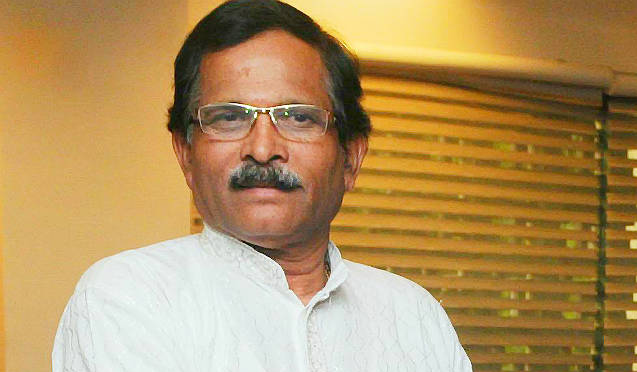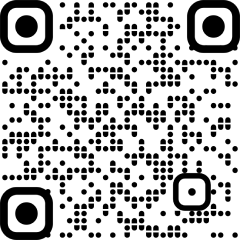
New Delhi: The Ayush market has seen exponential growth, increasing from USD 2.85 billion in 2014 to USD 43.4 billion in 2023, according to Shripad Yesso Naik, Minister of State for New and Renewable Energy. Addressing a press conference here on Monday, Naik also highlighted that exports from the sector have doubled, rising from USD 1.09 billion to USD 2.16 billion.
The Ministry of Ayush (Ayurveda, Yoga and Naturopathy, Unani, Siddha, and Homoeopathy) has undergone a transformative journey over the past decade, positioning India as a global leader in traditional medicine, Naik said.
Since its establishment in 2014 under the leadership of Prime Minister Narendra Modi, the ministry has spearheaded significant advancements in public health, education, research, and economic development, aligning with the United Nations Sustainable Development Goals (SDGs) and Universal Health Coverage (UHC), he added.
Naik said significant strides were made in the AYUSH sector, particularly in integrating traditional Indian medicine into mainstream healthcare.
He shared that there are currently over 7,55,780 registered Ayush practitioners in the country, along with more than 886 undergraduate and 251 postgraduate colleges, which collectively enrol 59,643 undergraduate students and 7,450 postgraduate students annually.
Additionally, there are 3,844 Ayush hospitals and 36,848 dispensaries (including 3,403 hospitals and 27,118 dispensaries in the government sector) across India. Three state-of-the-art satellite centres for the National Institutes of Ayush – the All India Institute of Ayurveda (AIIA) in Goa, the National Institute of Unani Medicine (NIUM) in Ghaziabad, and the National Institute of Homoeopathy (NIH) in Delhi – were inaugurated on December 11, 2022, by Prime Minister Modi.
These centres add 400 seats across undergraduate, postgraduate, and doctoral programmes, as well as 550 beds, he said. On research and innovation, Naik said that over 43,000 studies are hosted on the Ayush Research Portal, underscoring the importance of evidence-based healthcare.
Notable milestones include the development of AYUSH-64 and Kabasur Kudineer for Covid-19 management, as well as collaborations with institutions such as CSIR, ICMR, and AIIMS to establish Centres of Excellence.
In terms of technological integration, Naik highlighted digital transformations through initiatives like Ayush Grid, e-Sanjeevani telemedicine, and AI integration, all aimed at enhancing healthcare delivery.
AYUSH telemedicine, in particular, has been instrumental in providing quality healthcare to remote areas. Naik further informed that India’s global presence in the Ayush sector has grown significantly through strategic collaborations and initiatives.
At the country-to-country level, 24 Memorandums of Understanding (MoUs) have been signed, complemented by 48 institute-to-institute level MoUs fostering collaborative research.
In addition, 15 MoUs have been established to create academic chairs promoting AYUSH education and research globally.
Currently, Ayush Information Cells operate in 39 locations across 35 countries, acting as vital hubs for disseminating knowledge and raising global awareness.
Naik also mentioned India’s collaborations with over 103 countries to promote AYUSH systems and the establishment of the WHO Global Traditional Medicine Centre in Jamnagar, along with the recognition of traditional medicine in the ICD-11 in 2024.
He further stated that initiatives like the Ayush Visa and the Heal in India portal are driving medical tourism.
Naik also emphasised the success of International Yoga Day (IDY), which was first celebrated in 2015 and said it had achieved two Guinness World Records.
IDY-2022 introduced the innovative concept of the Guardian Ring of Yoga, symbolising global interconnectedness, Naik said. On December 11, 2014, the United Nations General Assembly unanimously adopted a resolution to observe June 21 every year as International Yoga Day, recognising yoga’s transformative power worldwide, Naik said.
The reach of IDY-2023 expanded to 192 countries, with 234.4 million participants globally. It incorporated new concepts such as the Ocean Ring of Yoga, Yoga for the Arctic to Antarctic, Yoga at the North and South Poles, Yoga Bharatmala, and Yoga Sagarmala, showcasing yoga’s universal appeal across diverse geographies and cultures.
In IDY-2024, participation surged to approximately 245.3 million, with social media engagement reaching over 34.89 million individuals and community radio stations engaging 2.6 million participants.
Nationally, significant participation came from the Ministry of Youth Affairs and Sports, schools, Anganwadi centres, and various government and private organisations.
Internationally, Indian embassies and leading yoga institutes engaged around 545,000 people. This extensive participation highlights the global impact of these initiatives.
Naik also spoke about the groundbreaking initiatives launched by Prime Minister Modi on the 9th Ayurveda Day, held on October 29, 2024.
Over 150 countries participated in the event, which was themed “Ayurveda Innovations for Global Health.” During the event, Prime Minister Modi inaugurated projects worth Rs 12,850 crore, including Phase II of the All India Institute of Ayurveda, AYUSH Centres of Excellence, Central Research Institutes for Yoga and Naturopathy, and the Desh Ka Prakriti Parikshan Abhiyan.
These initiatives mark a significant integration of Ayurveda with modern healthcare. The Desh Ka Prakriti Parikshan Abhiyan, a nationwide campaign launched by the Prime Minister, aims to revolutionise health awareness across India.
Mobilising 4,70,000 volunteers, this initiative promotes holistic well-being and preventative healthcare based on Ayurvedic principles.
It also seeks to break multiple Guinness World Records, underscoring India’s commitment to blending traditional knowledge with modern outreach. The campaign empowers individuals to adopt healthier lifestyles and aims to redefine preventive healthcare nationwide, Naik added.
“The Ministry of AYUSH continues to innovate and globalise traditional Indian medicine, ensuring quality, safety, and accessibility. India is poised to lead the world in holistic and sustainable healthcare solutions by leveraging technology, expanding research, and fostering global partnerships,” Naik said.
[ad_1]
Source link


